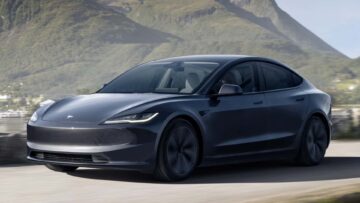BMW is in the process of electrifying its entire lineup. It’s safe to assume, then, that the M3, its flagship sports sedan, will lose its internal combustion engine in the near future. Indeed, that seems to have been the plan not long ago, however now a report from BMW Blog indicates some changes behind the scenes. A new ICE M3 is reportedly on the way, and it will exist alongside an electric model.
There’s a lot of interesting details in BMW Blog’s report. It claims the electric and ICE M3 will reportedly not share a platform, for instance. The report also says the M4 coupe will also allegedly be electric only. In other words, the sedan may be the only option for those who want straight-six power.
The plan, says BMW Blog, is to use the current 3.0-liter S58 engine for the next car, as it will still be emissions-compliant. This means power output in the neighborhood of 500 horsepower or more, but it’s very unlikely the new car will have a manual transmission. BMW M’s brass seems eager to get rid of pesky clutch pedals as soon as they can.
BMW has shown us a quad-motor electric M car before, but we’ve heard nothing since a short teaser was released several months ago. At that time, it was likely that the German automaker thought this would be the only drivetrain offered in a potential new M3, however reduced regulatory pressure has reportedly changed the picture.
Several countries have pushed back ICE bans, and stringent emissions regulations have been hit with loopholes or watered down entirely. The European Union carved out a provision that allows ICE cars to be powered by synthetic fuels, for instance. It’s also been reported that upcoming EPA regulations have been cut back following pressure from the automotive industry.
With all of this in mind it makes sense BMW will still offer an ICE-powered M3, especially if it’s using the same engine as the current generation. All of this should be taken with a grain of salt, of course, but it could mean that internal combustion’s relevance, at least in terms of performance cars, could last well into the 2030s.
- SEO Powered Content & PR Distribution. Get Amplified Today.
- PlatoData.Network Vertical Generative Ai. Empower Yourself. Access Here.
- PlatoAiStream. Web3 Intelligence. Knowledge Amplified. Access Here.
- PlatoESG. Carbon, CleanTech, Energy, Environment, Solar, Waste Management. Access Here.
- PlatoHealth. Biotech and Clinical Trials Intelligence. Access Here.
- Source: https://www.motor1.com/news/711596/bmw-m3-ice-and-electric/
- :has
- :is
- :not
- 1
- 16
- 2%
- 2023
- 500
- 9
- a
- ago
- All
- allegedly
- allows
- alongside
- also
- an
- and
- AS
- assume
- At
- automotive
- automotive industry
- back
- Bans
- BE
- been
- before
- behind
- behind the scenes
- Blog
- BMW
- brass
- but
- by
- car
- cars
- carved
- changed
- Changes
- claims
- content
- could
- countries
- course
- cs
- Current
- Cut
- details
- down
- drive
- eager
- Electric
- electrifying
- embed
- Emissions
- Engine
- Entire
- entirely
- EPA
- especially
- European
- european union
- exist
- false
- First
- flagship
- following
- For
- from
- future
- GAS
- generation
- German
- get
- Have
- heard
- Hit
- However
- HTTPS
- ICE
- if
- image
- in
- In other
- indeed
- industry
- instance
- interesting
- internal
- into
- IT
- ITS
- jpg
- Last
- least
- likely
- lineup
- Long
- loopholes
- lose
- Lot
- make
- MAKES
- manual
- max-width
- May..
- mean
- means
- might
- mind
- model
- months
- more
- Near
- never
- New
- next
- nothing
- now
- of
- offer
- offered
- on
- only
- Option
- or
- Other
- out
- output
- performance
- picture
- plan
- platform
- plato
- Plato Data Intelligence
- PlatoData
- potential
- power
- powered
- pressure
- process
- provision
- pushed
- Reduced
- regulations
- regulatory
- released
- relevance
- report
- Reported
- reportedly
- review
- Rid
- s
- safe
- salt
- same
- says
- scenes
- seems
- sense
- several
- Share
- Short
- should
- since
- some
- Soon
- Sports
- Still
- stringent
- taken
- teaser
- terms
- that
- The
- then
- they
- this
- those
- thought
- time
- to
- transmission
- true
- union
- unlikely
- upcoming
- us
- use
- using
- Ve
- very
- want
- was
- Way..
- we
- webp
- WELL
- WHO
- will
- with
- words
- would
- zephyrnet













